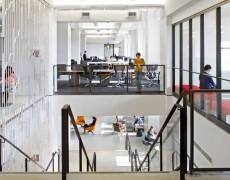January 14, 2015
Smart city systems will substantially reduce CO2 emissions, claims report
 A new report from Juniper Research claims that traffic management and parking systems in the new generation of smart cities will reduce global carbon dioxide emissions by some 164 million metric tonnes (MMT) over the next five years, equivalent to the emissions of 35 million vehicles annually. The report also claims that this will transform the lives of those who live and work in cities as it manages the 700 million vehicles that will travel around the world’s cities in 2019. The report, Smart Cities: Strategies, Energy, Emissions & Cost Savings 2014-2019, claims that high levels of city traffic congestion combined with advancements in ‘Internet of Things’ sensors and software solutions has driven plans to reduce high traffic levels through smart initiatives.
A new report from Juniper Research claims that traffic management and parking systems in the new generation of smart cities will reduce global carbon dioxide emissions by some 164 million metric tonnes (MMT) over the next five years, equivalent to the emissions of 35 million vehicles annually. The report also claims that this will transform the lives of those who live and work in cities as it manages the 700 million vehicles that will travel around the world’s cities in 2019. The report, Smart Cities: Strategies, Energy, Emissions & Cost Savings 2014-2019, claims that high levels of city traffic congestion combined with advancements in ‘Internet of Things’ sensors and software solutions has driven plans to reduce high traffic levels through smart initiatives.


























June 19, 2014
Virtually Uninspiring, Cautiously Aspirational – award winning offices for the VUCA world.
by Simon Heath • Architecture, Comment, Workplace design
More →